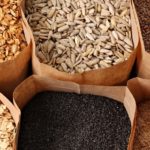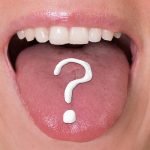If you’ve ever wondered whether your kids are getting the hydration they need, you are not alone. Recent research conducted by the National Health and Nutrition Examination Survey (NHANES), which is a branch of the CDC, seems to suggest that children across America are not drinking enough water throughout the day. But there are a few problems with this finding.
The study itself, conducted in 2005 and 2006 and working with nearly 4,000 children, sounds good, but has several serious discrepancies. But before we get to the problems, let’s look at the study results. Responding children were broken down into age categories. So those between 2 and 5 were reported to drink an average of 1.4 liters (or about 6 cups) of water a day. Those in the 6- to 11-year-old age group reported an average of 1.6 liters each day. And the oldest children, between 12 and 19, reported an average of 2.4 liters per day.
The difficulties begin when the researchers make the leap to say that none of the children except those between the ages of 2 and 3 had an adequate daily intake of water. This definition of the “right” amount of water for children is highly disputable. Many credible sources say that this amount — 6 to 8 cups daily — is actually just the quantity that a child’s body needs unless it’s extremely hot outside or they are exercising for a prolonged period of time. Only for teenage boys, starting around the age of 14, are the requirements somewhat higher. The suggested amount for that population is 2.6 liters daily, which, according to the study, means they are only missing the mark by less than one cup each day.
Of course, water is essential, as it is the single largest component of our bodies, contributing 60 percent of our total weight. It helps to rid our vital organs of toxins that can build up, brings essential nutrients to the cells throughout our beings, and keeps the mucous membranes moist and healthy.
That said, the second problem with the NHANES study is their recommendation that — since meals are typically the greatest source of beverage intake through the day — more water should be consumed while children are eating breakfast, lunch, and dinner. While it’s admirable to try to encourage children to drink more water, mealtime is not the right time to fill up on fluids. There is quite a bit of evidence that you should not drink too much of any beverage, even water, while eating because it can contribute to digestive issues. The more you drink during a meal, the more you dilute your stomach’s secretions. This causes the pH of the contents of your stomach to rise, triggering a production of more acid in an attempt to lower that pH back to a normal high acid level.
On top of that, the stomach, now distended from the volume of food and liquid, begins to push against the esophagus, forcing the contents back up the digestive tract. This is a primary factor is the onset of acid reflux disease and certainly not something that we want to bring on in our children!
Although less common in children, another ailment precipitated by drinking too much during meals is stomach ulcers. The acids of the stomach that kill such bacteria as H. pylori, which can produce ulcers, must be strong enough to do their job correctly. If stomach acid is diminished for any reason (such as regular use of proton pump inhibitors, excessive use of antacids, or regular consumption of large amounts of liquids with meals), this can allow the bacteria the opportunity to survive long enough to establish themselves in the mucosal lining protected from stomach acid. Therefore, the more children, or anyone for that matter, drinks with meals, the greater the likelihood that over time the lining of the stomach walls will be eroded and ulcers will develop.
Which brings us to the third and most serious problem. As the study points out, water can come from many sources besides plain water. According to the study, “The amount of water that came from plain water increased with age from 22% among those children aged 2 to 5 to 33% among 12- to 19-year-olds.” That means that 70+% percent of the so-called water kids were drinking in this study was in fact sodas, energy drinks, sugared juices, etc. Sugared drinks are not the same as pure water, despite their water content. Yes, the sugar is separated out during digestion, but it is still absorbed by the body with all of its health consequences. The bottom line is that drinking 2 liters of Red Bull does not produce the same hydrating results as drinking 2 liters of pure water — especially when you remember that caffeine is a diuretic. In other words, Red Bull makes you pee. It doesn’t hydrate you; it actually dehydrates you over time.
Given that information, we see that children are, in fact, severely dehydrated.












Hi Jon,
I’ve been following
Hi Jon,
I’ve been following your writing and taking your
herbal products for few years and have questions.
I’m feeling your knowledge and inspiration are
coming heavily from late Dr.Christopher also from
Dr.Schulze.
I love both herbalists and their philosophy that
“there’re no incurable diseases”, bit extreme, but
it gives me hope and passion for natural healing.
My question is.. Do you believe there’re no incurable
diseases?
Most of the time, I feel your passion for natural healing,
but sometimes, you’re in between. Not a huge believer
like Dr.Christopher or Dr.Schulze.
Obviously you’re extremely intelligent and have over
40 years of experience in this field. So I’d like to ask you
how you feel about the statement of “No Incurables”.
Do you believe there’re no incurable diseases, Jon?
Fran
Fran:
Yes, I am very familiar
Fran:
Yes, I am very familiar with both Doc Christopher and Dr. Richard Schulze. And for the herbal side of my knowledge, I draw heavily on them — but also on Ayurvedic, Chinese, and Rainforest wisdom too. As for my nutriceutical background, that comes from other doctors I’ve worked with.
Now as to the question of incurable illnesses, I don’t think either Doc or Richard Schulze means it literally when they say there are no incurable illnesses. It’s more of a philosophical statement. If one took it literally, then you’d have a hard time explaining why Doc Christopher died. After all, he adhered to his own incurables program and yet he too died. Bottom line: anyone who tells you that natural rememdies can overcome every illness is probably going to die eventually themselves no matter what they do.
In truth, I think that Drs. Schulze and Christopher are all really saying the same things:
* That the lifestyle choices you make have a profound effect on your health
* That using drugs to suppress symptoms does not promote health
* That using natural alternatives that work with your body, as opposed to medical approaches that work on it, are far preferrable
* That there are no magic bullets — that overcoming catastrophic illness requires a total effort. I remember once when hanging out with Richard him telling me the story of how people with late stage cancer would come to see him and tell him they’d do whatever it took to get well. Then Richard would lay out the program for them, and they’s say, “Wow! That’s a lot of work. It sounds like a full time job. I thought you were just going to give me some herbs or something. It seems a whole lot easier to just have the doctor cut it out.” Most of those people never got well.
* That incorporating a total health program such as the incurables program or the Baseline of Health Program, although it can’t guarantee that you’ll overcome a disease, can profoundly change the odds in your favor. And that’s really what it’s all about.
Hope that answers your question.
Jon:
Thank you for your
Jon:
Thank you for your answer, your words clarified a lot to me.
I’m in 20s and am actually a student of “School of Natural Healing”
and I chose my path to become an herbalist. I’ve been studying
herbalism and nutrition for several years, but as far as I know,
only Jon Barron and Richard Schulze seem real deal (that are alive).
I’m trying to understand the mindsets and realities you and Richard
live in so that I can start seeing things I’m not yet able to see clearly.
I believe that if I want to be the great herbalist, I need to change
my reality and way of thinking more than just learning technical side
of making tinctures.
Then I came across a big gap between your “logical” cool way of teaching
and Richard’s “emotional” hot way of teaching, where I got stuck.
Your explanation just makes total sense logically and your wide
background makes things more complete and harmonious.
Every time I read your material I agree with you, logically.
Whereas Dr.Schulze hates everything except his method, and
occasionally he doesn’t make sense at all. Nevertheless,
emotionally I agree with him.
My question to you is…
Q: If neuropeptides have power to alter DNA, why don’t you teach people
and make them “believe” that there’re no incurables, just so that
they can have “more chance” in recovering with power of the mind?
I totally understand that there “ARE” incurable diseases, and not only Dr.Christopher died of head injury, many of his patients died too.
But I believe more hopeless patients cured themselves because of
“No Incurables Philosophy”.
I’m not trying to be rude or offending.. I just want to really understand
how you see things, and why you chose your style of teaching.
P.S.
I’m trying to purchase Home Scalar Chamber for myself,
which company do you think I should look into?
Fran:
Fran, the reason I
Fran:
Fran, the reason I don’t tell people that everything is curable is because there are two huge downsides. First, if it were true that just having the right attitude and doing the right things “guaranteed” a cure, then who would be responsible when you don’t get well, or more importantly have a downturn…perhaps caused by a detox reaction? You, of course. And wouldn’t you feel terrible telling someone who lived in Love Canal or was poisoned with hexavalent chromium by PG&E in Erin Brockovich country that the reason they weren’t getting well was insufficient positive thinking? The bottom line is that telling people that every disease is curable when it’s not ends up creating a lot of people feeling incredibly guilty because their not good enough to “will” themselves well. Second, because everybody can see that all of the natural healers who have come before them are now dead, they inherently know that not everything is curable. Ultimately, everyone succumbs to something. I’m not sure that telling people something they know is inherently not true is going to improve their attitude. I think it’s more than enough to tell people that their odds of staying healthy or curing catastrophic illness are dramatically better if they do the right thing — that they have a large degree of control over their own health. I guess what I’m saying is that once again honesty aseems to be the best policy — especially in terms of health. I try and follow that precept as best I can.
On a more philosophical note. Ultimately, there is no such thing as disease, since physical reality is, in the truest sense, an illusion. When you take things down to the subatomic level, physical reality begins to disappear. In fact, most of reality is nothing more than a series of force fields surrounding empty space. Even better, when you go deeper, even the force fields begin to disappear, and the so called particles such as quarks are differentiated by their “flavors.” Metaphysically, then, disease can be considered an illusion — a disturbance in the force, if you will. But for most of us, that’s merely a philosophical consideration. Unfortunately, as long as you yell when you hit your thumb with a hammer, you are bound by the laws of the physical illusion — and thus required to use more than just thoughts to get well.
And speaking of physical illusions, I now must pack and head off on a consulting trip for a couple of weeks. And with that, I leave this discussion to others.
All mortal things have a
All mortal things have a beginning, and an end,but we do have a large amount of control over our health, even in a polluted world. Dr. Barron’s way of explaining and teaching how our bodies work gives us more intelligent control.
Good!!!! Water is a very good
Good!!!! Water is a very good commodity. It ensure maximum utilization of nutrients in other food we consume. Thanks for the comment.
I was very please reading
I was very please reading your article. It was worth reading like taking my meal everyday.Yes, kids should drink plenty of water. This is a natural way of healing our sickness and it would prevent us from possible diseases as well.I drink plenty of water as well. I drink 8 cups to make me hydrated and I learned it from my natural therapist.
Jon:
I really liked your
Jon:
I really liked your answer. Thanks!
Parents definitely need to be
Parents definitely need to be proactive in having their children drink water – and this doesn’t mean giving them soda or sweetened drinks whenever they’re thirsty, but pure, healthy water. I see many children push themselves to the point of near heat exhaustion while playing outside, and then run to their parents to get some soda.
Children have a problem
Children have a problem drinking during their day at school. I am sure my grand-daughters were afraid of drinking in case they wanted to go to the toilet and the teacher would not always allow them to do so, in class time. I believe this to be a big and serious problem, and at one point a grand-daughter had kidney problems.
So, if this is correct, about
So, if this is correct, about not drinking water before during and directly after eating a meal; when is the optimal time ~ especially for children? My son seems to be exhibiting some of the acid reflux the article describes~and for a long time.. even the up chuck of it.. he says. Any other bitters or herbal digestives that may help?
The best is to drink water
The best is to drink water inbetween meals. Here is a link you may enjoy on digestive enzymes.